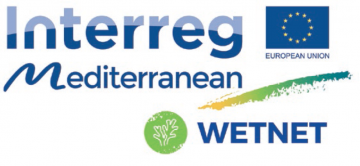Case study:INTERREG MED WETNET – Memorandum of Cooperation towards a Wetland Contract for the Island of Gozo: Difference between revisions
No edit summary |
No edit summary |
||
| Line 37: | Line 37: | ||
|Invasive species present=Yes | |Invasive species present=Yes | ||
}} | }} | ||
{{Project background}} | {{Project background | ||
|Project started=2016/11/01 | |||
|Project completed=2019/10/31 | |||
|Funding sources=Project co-financed by the European Regional Development Fund | |||
}} | |||
{{Motivations}} | {{Motivations}} | ||
{{Measures}} | {{Measures}} | ||
Revision as of 11:31, 9 December 2019
This case study is pending approval by a RiverWiki administrator.
Project overview
| Status | Complete |
|---|---|
| Project web site | http://wetnet.interreg-med.eu/ |
| Themes | Economic aspects, Environmental flows and water resources, Habitat and biodiversity, Land use management - agriculture, Monitoring, Social benefits, Water quality |
| Country | Malta |
| Main contact forename | George |
| Main contact surname | Refalo |
| Main contact user ID | |
| Contact organisation | Gozo Regional Committee - GRC |
| Contact organisation web site | http://www.mcesd.org.mt/content.aspx?id=103088 |
| Partner organisations | |
| Parent multi-site project | |
| This is a parent project encompassing the following projects |
No |
Project summary
The Gozo Regional Committee held, within the Interreg Med Wetnet project, a series of participatory events for stakeholders in aspects affecting, or being a result of, the island's wetland context, with the aim of paving the way towards a Wetland Contract for the island of Gozo.
The process led to the definition and prioritisation of a list of actions that relate to the pilot areas, directly or indirectly. This was done through a concerted approach where all actors contributed, and constructive discussions were held in relation to potential barriers that could be faced if the actions were to be implemented. Some of the actions overlapped with the Eco-Gozo vision. In such cases, progress of implementation was discussed with the relevant entity, and fine-tuned to avoid overlap. For instance, Eco-Gozo already included the establishment of the “Made in Gozo” label, which was very similar to an action to brand local agricultural produce, however the entity had faced several legal barriers when trying to establish the label, but agreed that it may be worthwhile to re-investigate what the possibilities are. Hence, the action was reworded to fit. A similar approach was taken with other overlaps, and in some cases actions were toned down or broadened for entities to be comfortable in committing to sign the agreement. This was due to concern expressed by some entities. While the signed document is positive, and is evidence that the relevant entities are willing to collaborate and take it forward, further follow-up will be necessary after the end of the project in order to actually activate or continue collaborations, since the agreement does not involve time-frames or the assignment of resources. The Memorandum of Collaboration is the first step, of many necessary, towards a Wetlands Contract for the island of Gozo.
The Memorandum is signed by 5 local actors and it will be open to be signed by other actors by the end of the 2019.
Monitoring surveys and results
Lessons learnt
A Memorandum of Collaboration is being signed rather than a Wetland Contract, in view of the current local situation where entities have shown that they are not in a position to commit further resources (man-power and finances) to additional tasks. This is mainly due to the fact that the relevant entities are already committed to execute actions that are currently taking up all their resources and running on very tight budget lines. In order to be able to assign budget, a formal request would need to be put forward by the relevant entities, and approved by central Government for upcoming financial years. Such requests need to be made well in advance. Despite this, stakeholders proved willing to commit to a lower level, via a different form document similar to a Memorandum of Understanding, whereby they express agreement on further collaboration on an agreed list of priorities/actions.
Image gallery
|
Catchment and subcatchmentSelect a catchment/subcatchment
Catchment
Subcatchment
Site
Project background
Cost for project phases
Reasons for river restoration
Measures
MonitoringHydromorphological quality elements
Biological quality elements
Physico-chemical quality elements
Any other monitoring, e.g. social, economic
Monitoring documents
Additional documents and videos
Additional links and references
Supplementary InformationEdit Supplementary Information
| ||||||||||||||||||||||||||||||||||||||||||||||||||||||||||||||||||||||||||||||||||||||||||||||||||||||||||||||||||||||||||||||||||||||||||||||||||||||||||||||||||||||||||||||||||||||||||||||||||||||||

